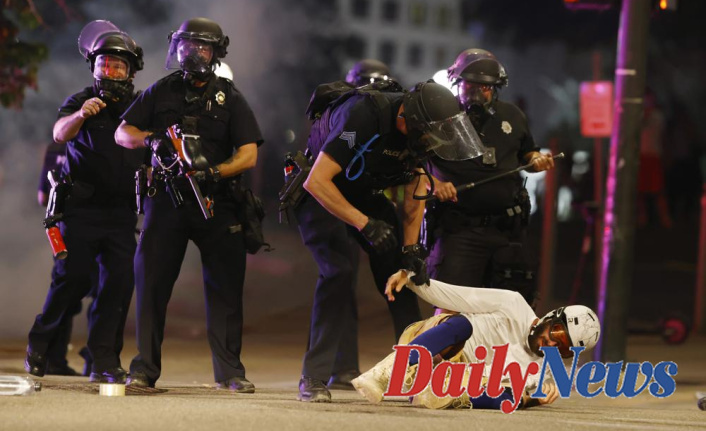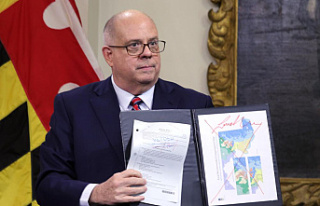After four hours of deliberations, the jury, which consisted of six women and two men, was largely composed of white people from Colorado. After three weeks of testimony, including evidence from police and protester videos of incidents, the verdict was reached after four hours of deliberations.
It was believed that it was the first case in a suit challenging officer tactics during 2020 protests, which erupted across the country over Floyd's killing.
Protesters who sued were hit with pepper spray, pepper spray, and a Kevlar bag containing lead shot from a shotgun. Zach Packard was struck in the head with the shotgun blast. He ended up in the ICU and received $3 million in damages.
Timothy Macdonald was one of the protesters' attorneys. He urged jurors not to let Denver police know that they were not liable by holding the city responsible during closing arguments.
He said, "Hopefully, police departments will take this from a jury of regular citizens takes the rights very seriously," after the verdict.
Elisabeth Epps is a lawyer and activist. She was one of the protesters who filed suit. After she testified that she has been attending protests since childhood and received training on how to react to being tear-gassed, one Denver lawyer called her a "professional demonstrator". She became emotional when she spoke about the meaning of the jury siding with protesters.
Epps stated, "It feels as if being seen."
Protesters claimed that police actions violated their rights to free speech and protection from unreasonable force. The jury found that 11 protesters had violated both their free speech rights and the other only. Protesters claimed Denver was responsible for police policies that allowed officers to use "less deadly" devices without training them. They also failed to require officers to wear body-worn cameras during protests in order to prevent indiscriminate force.
Denver admitted during the trial that errors were made at the protests. It claimed they were unheard of in terms of their duration, size, violence, and destruction. According to the city, more than 80 officers were hurt by protesters throwing rocks, water bottles, canned food and other objects at them. The state Capitol, which was the center of the protests caused $1.1 million worth of damage. The lawyers for the protesters who sued said they weren't accused of being violent.
Lindsay Jordan, one of Denver's lawyers, said that the city had planned to conduct a large training on crowd control in spring 2020 due to the forthcoming presidential election. However, it was cancelled because of COVID-19. She said that officers' mistakes during protests don't automatically amount to constitutional violations. Noting that thousands of people were able to exercise their freedom of speech rights, despite the use of force by police over the five-day demonstrations, she stressed that they are not necessarily guilty of making any.
She stated that "violence and destruction occurred around the community needed intervention."
According to the department, five Denver police officers were disciplined for their actions in the protests. One officer who was still on probation and a new member of the Denver police force was fired for posting a picture on social media showing him and others in tactical gear and the comment "Let’s start a revolution."
Police brutality in the national protests have been met with aggressive responses by officers. This has led to financial settlements, departures of chief police officers and criminal charges.
In Austin, Texas, officers have agreed to pay more than $13 million to people who were injured during protests in May 2020. 19 officers have also been indicted in connection with their actions against protesters. Two Dallas police officers were accused last month of injuring protesters with less lethal weapons.
A federal judge in 2021 dismissed the majority of claims by civil liberties and activists groups regarding the forcible removal protesters by police. This happened before President Donald Trump went to a nearby church for a photo shoot.












